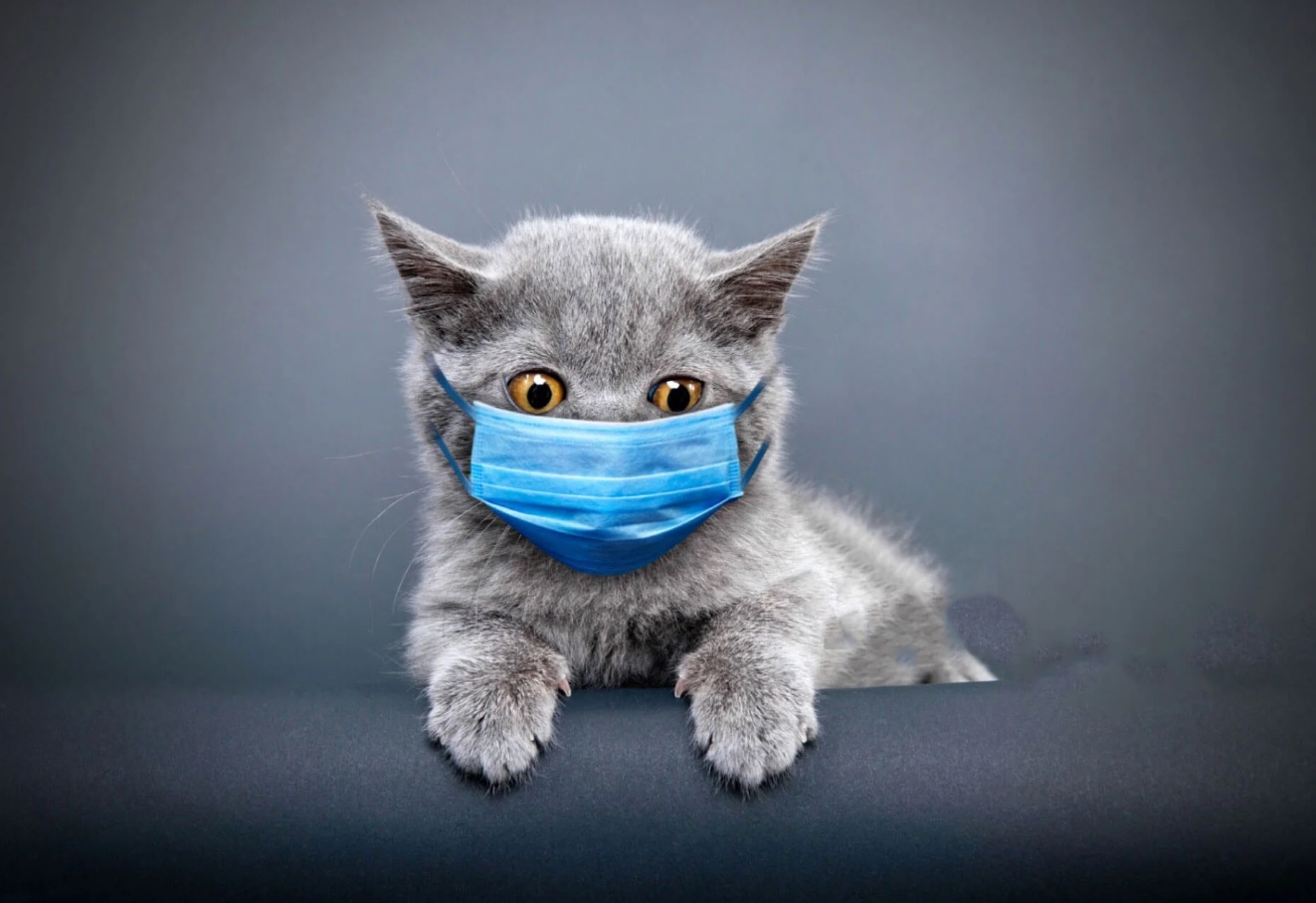
Near East University researchers continue their clinical studies of the PCR kit they developed against the feline coronavirus, which is estimated to cause many cat deaths in Cyprus in 2023. The developed PCR kit provides diagnosis within 3 hours from clinical samples taken from the cat.
Although human life returned to normal after the COVID-19 pandemic, which caused the death of approximately 7 million people worldwide, 2023 was not a good year for cats in Cyprus in this regard. There was an extraordinary increase in feline coronavirus cases called Feline Infectious Peritonitis (FIP), which started to spread in Cyprus in December 2022. According to different sources, more than 300 thousand house and stray cats died in Cyprus due to cat coronavirus cases that continue in 2023. However, it is not possible to present a clear balance sheet due to the high number of stray animals in Cyprus and the difficulty of tracking how many cases are referred to veterinary or animal hospitals.
A PCR kit was developed to detect the feline coronavirus, which turned into an epidemic in Cyprus, through a multidisciplinary study carried out by Near East University DESAM Research Institute researchers, DESAM Veterinary Research Group, Near East University Animal Hospital and veterinarians at the Faculty of Veterinary Medicine. The PCR kit, of which clinical studies are continuing, can diagnose cat clinical samples within 3 hours.
10 percent of infected cats develop fatal FIP disease
Feline Coronavirus (FCoV), a type of coronavirus in cats, is a virus that causes infections in the gastrointestinal tract, usually consisting of the stomach and intestines. Symptoms of FCoV are generally mild and most cats recover from the disease without showing any symptoms after being infected with the virus. Some cats can remain carriers and transmit the virus to another cat. However, in approximately 10 percent of cases, a fatal disease called Feline Infectious Peritonitis (FIP) may develop. FIP in cats usually occurs as a disease that affects the immune system. Symptoms include loss of appetite, weight loss, fever, intra-abdominal fluid accumulation, breathing difficulty and general weakness. Of course, these symptoms can also indicate other health problems in cats. Therefore, veterinary control is important for correct diagnosis.
An intense reaction to the coronavirus develops around the vessels in tissues such as the abdomen, kidney or brain, where infected cells are located in the body of the cat with FIP. The lack of a definitive and preventive treatment in cats with FIP causes the mortality rate to be quite high.
No cases of human transmission have been reported so far!
It is known in the literature that the disease is transmitted only between cats. There have been no cases of feline coronavirus transmission between cats and humans or other animal species. However, the receptors that the cat coronavirus uses to enter the cell are highly similar to human cell receptors. This indicates that there may be a possibility that the virus can be transmitted to humans as a result of a possible mutation. The possibility of the development of these mutations was discussed in the project carried out by DESAM Research Institute researchers, and the project results will be shared with the public soon.

Prof. Dr. Tamer Şanlıdağ: “The PCR Kits developed by our researchers working together with a multidisciplinary approach are the strongest key to our preparedness for possible epidemics.”
Reminding that the PCR and Variant Analysis Kit, which was developed and put into use by Near East University in the early periods of the COVID-19 pandemic caused by the Sars-Cov-2 virus, played a very important function in the fight against the pandemic, Near East University Rector Prof. Dr. Tamer Şanlıdağ said, “We also used our expertise in this field to develop PCR kits for the detection of viruses that can cause dangerous epidemics such as Dengue Fever, Chikungunya Virus, Monkey Pox, Hepatitis Delta Virus and West Nile Virus. The kit we developed for the detection of Feline Infectious Peritonitis (FIP), also known as feline coronavirus, is an important extension of these studies.”
Emphasizing that the PCR Diagnostic Kits they developed are of critical importance for the detection of possible epidemics that may occur in humans or animals, Prof. Dr. Tamer Şanlıdağ said, “The PCR Kits developed by our researchers working together with a multidisciplinary approach are the strongest key to our preparedness for possible epidemics.”

Assoc. Prof. Dr. Cenk Serhan Özverel: “Our PCR kit, on which we continue clinical studies, will meet an important need.”
Near East University DESAM Research Institute Director Assoc. Prof. Dr. Cenk Serhan Özverel emphasized that they closely followed the Feline Infectious Peritonitis (FIP) disease, which emerged in Cyprus in December 2022, and said, “We are working together with the veterinarians of the Hospital and the Faculty of Veterinary medicine for the diagnosis of the disease, which causes an epidemic among domestic and stray cats and is popularly known as cat coronavirus.”
Assoc. Prof. Dr. Özverel emphasized that the PCR Kit they developed as a result of the studies enables diagnosis within 3 hours from cat clinical samples and said, “Our PCR kit, on which we continue clinical studies, will meet an important need.”
Assoc. Prof. Dr. Özverel emphasized that the treatment of the disease is as important as the correct diagnosis and said, “As DESAM Research Institute, our studies on new generation preventive treatments to be used in the fight against the disease continue.”

Assoc. Prof. Dr. İsfendiyar Darbaz: “Many symptoms indicating FIP may also belong to other diseases.”
Near East University Faculty of Veterinary Medicine Deputy Dean Assoc. Prof. Dr. İsfendiyar Darbaz also said that they supported the PCR kit development studies carried out by DESAM Research Institute together with the veterinarians of Near East University Animal Hospital.
Assoc. Prof. Dr. İsfendiyar Darbaz pointed out that Feline Infectious Peritonitis (FIP), which is very common in Cyprus in 2023, has the potential to threaten human health as well as cat health and said, “Many symptoms indicating FIP may also belong to other diseases. Cat owners can detect potential health problems at an early stage by closely monitoring their cats’ health and attending regular veterinary checks.”